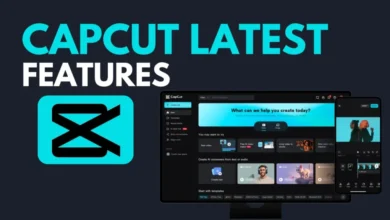The Likelo Paradox: Chasing Validation in the Digital Age

We live in a world meticulously curated for public consumption. Every sunrise is an Instagram opportunity, every meal a potential TikTok review, and every personal milestone a metric for social approval. At the heart of this digital performance lies a single, powerful, and often deceptive metric: the “like.” But what happens when this quest for external validation begins to shape our internal reality? Welcome to the era of “Likelo“—a portmanteau of “like” and “ego” describing the phenomenon where our self-worth becomes dangerously intertwined with the quantifiable approval we receive online. This isn’t just about social media; it’s about a fundamental shift in how we perceive ourselves and our place in the world.
The Architecture of Validation – How Platforms Engineered Our Need for Likes
The “Likelo” mindset did not emerge in a vacuum; it was meticulously designed. Social media platforms are built on a foundation of variable reward schedules, a concept rooted in behavioral psychology most famously associated with slot machines. The act of posting content creates an anticipation of reward. Each notification—a like, a comment, a share—delivers a small hit of dopamine, the brain’s primary reward chemical. This conditions us to seek out more of these micro-validations, turning posting from a casual act of sharing into a targeted pursuit of approval. The design is intentional: infinite scrolls keep us engaged, while algorithms prioritize content that garners high engagement, effectively creating a blueprint for what is “worthy” of attention. We are not just users of these platforms; we are participants in a large-scale psychological experiment that rewards conformity, emotional reactivity, and often, superficiality, training us to value the metric of a like over the authenticity of the experience itself.
The Internal Erosion – When Your Self-Worth Becomes a Number
The most profound impact of the Likelo paradox is its silent erosion of intrinsic self-worth. When we consistently measure our joy, success, or beauty against the number of hearts or thumbs-up a post receives, we outsource our self-esteem to a fickle and often anonymous audience. A post that underperforms can trigger a disproportionate sense of rejection, anxiety, or irrelevance, leading to questions like, “Was my vacation not fun enough?” or “Is my new outfit actually ugly?” This externalizes our internal compass. Instead of developing a stable sense of self based on personal values, accomplishments, and real-world relationships, we construct a fragile identity reliant on constant digital affirmation. This can lead to a phenomenon known as “compare and despair,” where we endlessly measure our behind-the-scenes reality against everyone else’s highlight reel, fostering feelings of inadequacy, imposter syndrome, and a persistent fear of missing out (FOMO).
Reclaiming Your Narrative – Strategies to Break Free from the Likelo Cycle
Disengaging from the Likelo mindset requires conscious, deliberate effort, as it means rewiring habits that platforms have spent years helping us form. The first and most powerful step is a digital audit: curating your feed to include accounts that inspire, educate, and genuinely connect with you, while muting or unfollowing those that trigger comparison or feelings of lack. Secondly, practice intentional posting. Before sharing, ask yourself: “Am I posting to share a genuine moment, or am I posting to receive validation?” Shifting the motivation from external approval to internal expression is crucial. Furthermore, implementing strict boundaries, such as designated “phone-free” times or spaces, helps rebuild the muscle of being present without the need for documentation. Finally, the most radical act is to actively seek validation offline—investing in hobbies, having deep conversations, and accomplishing personal goals that provide a sense of fulfillment no algorithm can quantify. It’s about transferring the energy spent cultivating an online persona into nurturing your real-world self.
The Delicate Balance – Can We Use Social Media Without It Using Us?
The goal is not necessarily to delete all social media and live as a digital hermit, but to achieve a healthy, mindful equilibrium where we use these tools as tools, not as life-support systems. It is entirely possible to enjoy the connective benefits of these platforms—staying in touch with distant family, discovering communities of interest, and accessing a wealth of information—without letting them dictate our self-perception. The balance is achieved by consistently re-anchoring ourselves in reality. This means remembering that online engagement is a distorted metric, not a measure of your worth. It means valuing the quiet, un-shared moments just as much, if not more, than the ones that are broadcasted. It involves understanding that a like is a fleeting, low-investment gesture, while real-life connection, vulnerability, and self-accepted worth are the true currencies of a fulfilled life. The power remains with the user to define the relationship with the platform, not the other way around.
Conclusion
The Likelo paradox is one of the defining psychological challenges of our time, a silent trade-off where we exchange snippets of our authentic selves for the cold comfort of quantified approval. It represents a crossroads between our digital and physical identities. By understanding the mechanisms behind it, acknowledging its impact on our psyche, and actively implementing strategies to protect our intrinsic self-worth, we can begin to dismantle its influence. The journey away from Likelo is a journey back to oneself—a reclamation of the narrative that our value is inherent, complex, and beautifully immeasurable, existing far beyond the binary simplicity of a like.
FAQ Section
Q: Isn’t wanting likes and validation just a normal human desire?
A: Absolutely. The desire for social connection and acceptance is a fundamental human need. The issue with the “Likelo” phenomenon is not the desire itself, but the scale, immediacy, and quantification of it. When validation is reduced to a public number that can be instantly compared to others, it distorts a healthy social need into a compulsive, anxiety-driven metric that can undermine deeper, more meaningful forms of connection.
Q: Are influencers and content creators more susceptible to the Likelo effect?
A: Without a doubt. For many influencers, likes, shares, and engagement rates are directly tied to their livelihood, brand partnerships, and perceived success. This professional dependency can massively amplify the pressure, potentially leading to burnout, mental health struggles, and a constant need to perform or create controversial content solely for the sake of algorithmically-friendly engagement, further divorcing their online persona from their authentic self.
Q: I’ve tried to cut back but I always end up scrolling again. How can I make it stick?
A: Relapse is part of the process. These apps are designed to be addictive. Instead of aiming for perfection (e.g., “I will never use Instagram again”), set smaller, achievable goals. Try disabling notifications for all social apps, so you check them on your own terms, not when they demand attention. Use app timers built into your phone. Also, replace the habit: when you feel the urge to scroll mindlessly, have a go-to alternative ready, like reading a few pages of a book, doing a short meditation, or simply looking out the window for a minute.
Q: Is the removal of public like counts (on platforms like Instagram and Facebook) a solution?
A: It’s a significant step in the right direction. Hiding public like counts helps reduce social comparison and the “herd mentality” where people are more likely to like something that already has many likes. However, the core issue remains for the content creator, who can still see their own engagement metrics. The drive for validation can simply shift from seeking a public number to obsessing over private insights and follower growth analytics, so the internal work of detaching self-worth from metrics is still essential.



